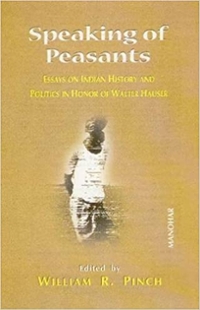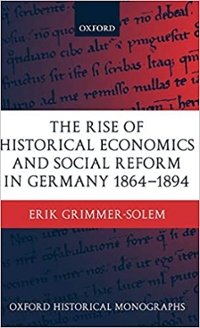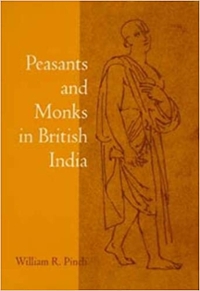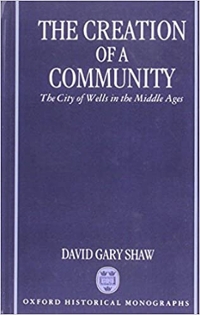-
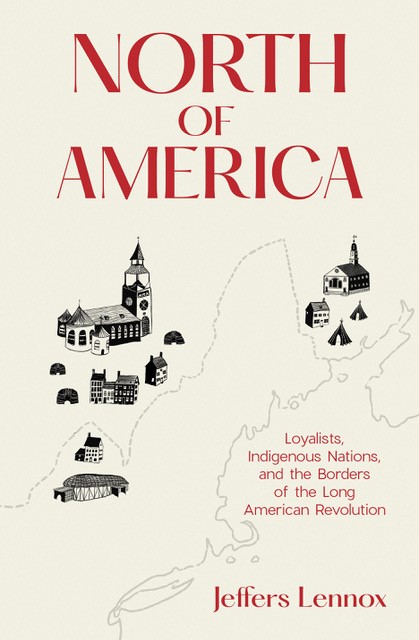
2022: North of America: Loyalists, Indigenous Nations, and the Borders of the Long American Revolution (Yale University Press, 2022)
by Jeffers Lennox (Author)
How the United States was created—a complex and surprising story of patriots, Indigenous peoples, loyalists, visionaries and scoundrels.
Read More
The story of the Thirteen Colonies’ struggle for independence from Britain is well known to every American schoolchild. But at the start of the Revolutionary War, there were more than thirteen British colonies in North America. Patriots were surrounded by Indigenous homelands and loyal provinces. Independence had its limits.Upper Canada, Lower Canada, New Brunswick, Nova Scotia, Newfoundland, and especially the homelands that straddled colonial borders, were far less foreign to the men and women who established the United States than Canada is to those who live here now. These northern neighbors were far from inactive during the Revolution. The participation of the loyal British provinces and Indigenous nations that largely rejected the Revolution—as antagonists, opponents, or bystanders—shaped the progress of the conflict and influenced the American nation’s early development.
In this book, historian Jeffers Lennox looks north, as so many Americans at that time did, and describes how Loyalists and Indigenous leaders frustrated Patriot ambitions, defended their territory, and acted as midwives to the birth of the United States while restricting and redirecting its continental aspirations. -
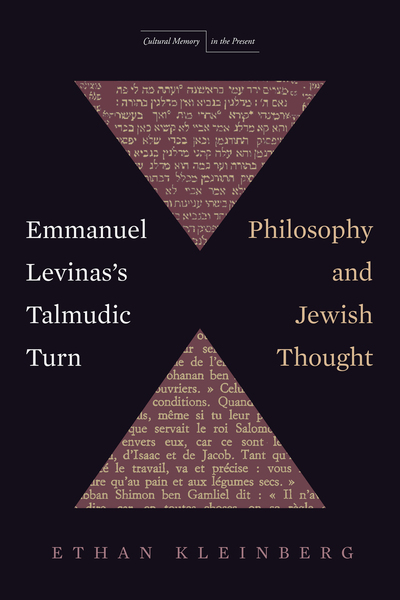
October 2021: Emmanuel Levinas's Talmudic Turn
by Ethan Kleinberg (Author)
Emmanuel Levinas's Talmudic TurnPhilosophy and Jewish Thought: In this rich intellectual history of the French-Jewish philosopher Emmanuel Levinas's Talmudic lectures in Paris, Ethan Kleinberg addresses Levinas's Jewish life and its relation to his philosophical writings while making an argument for the role and importance of Levinas's Talmudic lessons.Read MorePairing each chapter with a related Talmudic lecture, Kleinberg uses the distinction Levinas presents between "God on Our Side" and "God on God's Side" to provide two discrete and at times conflicting approaches to Levinas's Talmudic readings. One is historically situated and argued from "our side" while the other uses Levinas's Talmudic readings themselves to approach the issues as timeless and derived from "God on God's own side." Bringing the two approaches together, Kleinberg asks whether the ethical message and moral urgency of Levinas's Talmudic lectures can be extended beyond the texts and beliefs of a chosen people, religion, or even the seemingly primary unit of the self.
Touching on Western philosophy, French Enlightenment universalism, and the Lithuanian Talmudic tradition, Kleinberg provides readers with a boundary-pushing investigation into the origins, influences, and causes of Levinas's turn to and use of Talmud.
About the author
Ethan Kleinberg is the Class of 1958 Distinguished Professor of History and Letters at Wesleyan University. He is the author of Generation Existential: Heidegger's Philosophy in France, 1927–1961 (2005) and Haunting History: For a Deconstructive Approach to the Past (SUP, 2017).
-

Embodied Engineering: Gendered Labor, Food Security, and Taste in Twentieth-Century Mali
by Laura Ann Twagira (Author)
Embodied Engineering: Gendered Labor, Food Security, and Taste in Twentieth-Century Mali (Athens: Ohio University Press, 2021).
https://www.ohioswallow.com/book/Embodied+Engineering
Common narratives about development in Africa miss the critical technological work of women. Twagira’s study instead positions Malian women as rural engineers whose strategic planning and labor over the course of the twentieth century assured their food security.
Read MoreForegrounding African women’s ingenuity and labor, this pioneering case study shows how women in rural Mali have used technology to ensure food security through the colonial period, environmental crises, and postcolonial rule.
By advocating for an understanding of rural Malian women as engineers, Laura Ann Twagira rejects the persistent image of African women as subjects without technological knowledge or access and instead reveals a hidden history about gender, development, and improvisation. In so doing, she also significantly expands the scope of African science and technology studies.
Using the Office du Niger agricultural project as a case study, Twagira argues that women used modest technologies (such as a mortar and pestle or metal pots) and organized female labor to create, maintain, and reengineer a complex and highly adaptive food production system. While women often incorporated labor-saving technologies into their work routines, they did not view their own physical labor as the problem it is so often framed to be in development narratives. Rather, women’s embodied techniques and knowledge were central to their ability to transform a development project centered on export production into an environmental resource that addressed local taste and consumption needs.
-

Recharging China in War and Revolution, 1882-1955
by Ying Jia Tan (Author)
In Recharging China in War and Revolution, 1882–1955, Ying Jia Tan explores the fascinating politics of Chinese power consumption as electrical industries developed during seven decades of revolution and warfare. Tan traces this history from the textile-factory power shortages of the late Qing, through the struggle over China's electrical industries during its civil war, to the 1937 Japanese invasion that robbed China of 97 percent of its generative capacity. Along the way, he demonstrates that power industries became an integral part of the nation's military-industrial complex, showing how competing regimes asserted economic sovereignty through the nationalization of electricity.
Read MoreBased on a wide range of published records, engineering reports, and archival collections in China, Taiwan, Japan, and the United States, Recharging China in War and Revolution, 1882–1955 argues that, even in times of peace, the Chinese economy operated as though still at war, constructing power systems that met immediate demands but sacrificed efficiency and longevity. Thanks to generous funding from the Andrew W. Mellon Foundation, through The Sustainable History Monograph Pilot, the ebook editions of this book are available as Open Access volumes from Cornell Open (cornellopen.org) and other repositories.
-
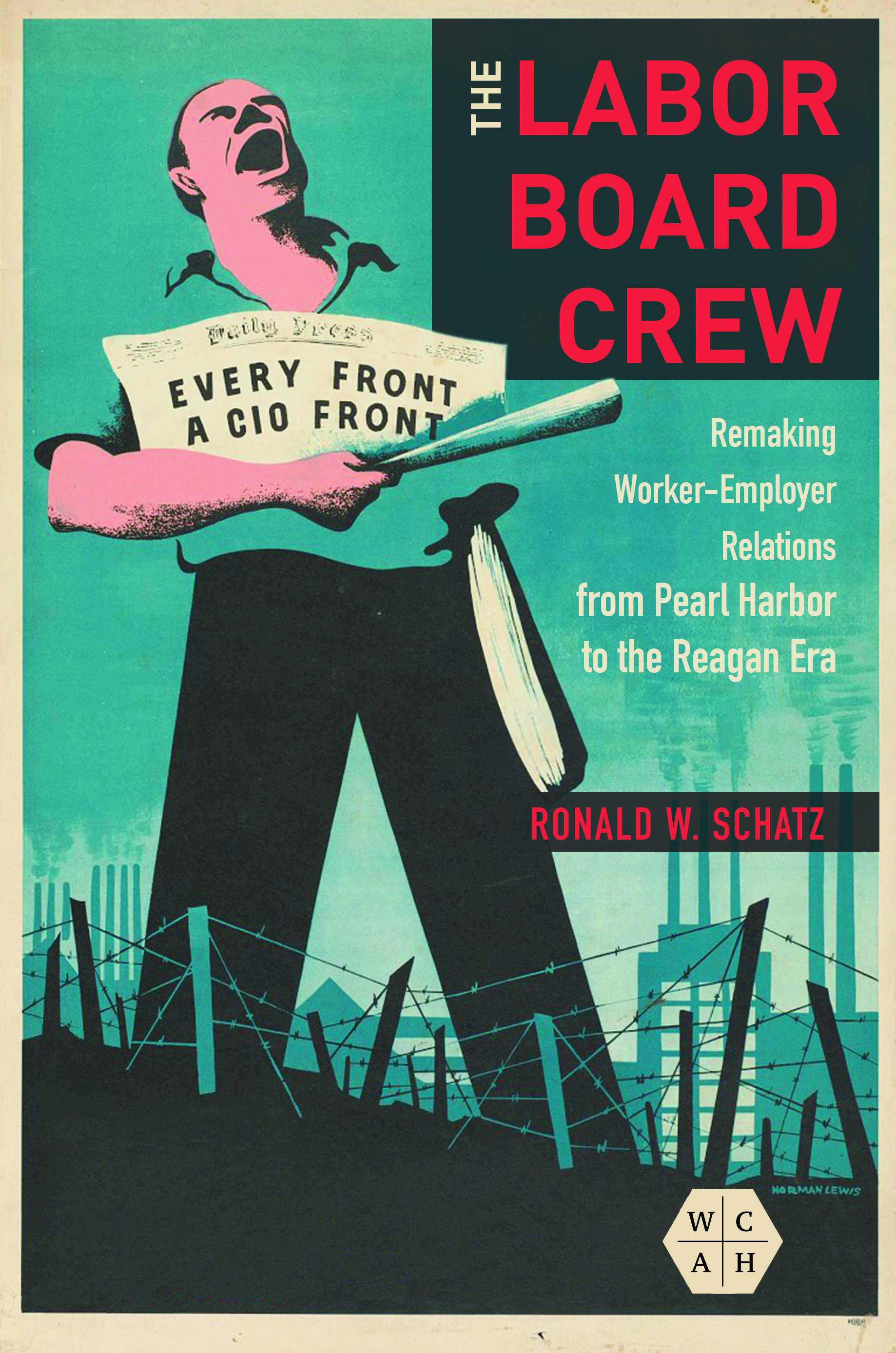
The Labor Board Crew: Remaking Worker-Employer Relations from Pearl Harbor to the Reagan Era
by Ronald Schatz (Author)
Members of the National War Labor Board and the world they made.
Ronald W. Schatz tells the story of the team of young economists and lawyers recruited to the National War Labor Board to resolve union-management conflicts during the Second World War.
Read MoreThe crew (including Clark Kerr, John Dunlop, Jean McKelvey, and Marvin Miller) exerted broad influence on the U.S. economy and society for the next forty years. They handled thousands of grievances and strikes. They founded academic industrial relations programs. When the 1960s student movement erupted, universities appointed them as top administrators charged with quelling the conflicts. In the 1970s, they developed systems that advanced public sector unionization and revolutionized employment conditions in Major League Baseball.
Schatz argues that the Labor Board vets, who saw themselves as disinterested technocrats, were in truth utopian reformers aiming to transform the world. Beginning in the 1970s stagflation era, they faced unforeseen opposition, and the cooperative relationships they had fostered withered. Yet their protégé George Shultz used mediation techniques learned from his mentors to assist in the integration of Southern public schools, institute affirmative action in industry, and conduct Cold War negotiations with Mikhail Gorbachev.
"A learned, engaging, and important book on a subject about which most labor historians today, I suspect, know relatively little. Ron Schatz demonstrates convincingly, through clear and absorbing case studies, that the officials responsible for operationalizing a labor-relations system in these years also brought their worldviews, desires for stability, and passions to many other arenas ranging from higher education to baseball to Gorbachev and the end of the Cold War."--Eric Arnesen, author of Brotherhoods of Color: Black Railroad Workers and the Struggle for Equality
"A fascinating collective biography of the architects of postwar U.S. industrial relations, a unique generation whose pluralist worldview was forged in the crucible of wartime. Schatz brilliantly exposes their subsequent leadership shaping a variety of institutions, from higher education to international diplomacy, even as the industrial relations system they had created devolved."--Ruth Milkman, Gender at Work: The Dynamics of Job Segregation by Sex during World War II.You can purchase this book here.
-
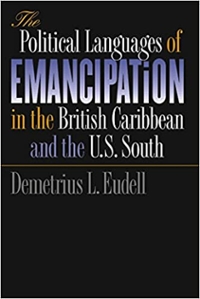
The Political Languages of Emancipation in the British Caribbean and the U.S. South
by
Read More
Eudell investigates the public policies--which addressed issues of labor control, access to land, and the general social behaviors of former slaves--used to execute emancipation. In both regions, government-appointed officials (special magistrates in Jamaica and agents of the Freedmen's Bureau in South Carolina) were crucial in implementing these policies. While many former slaves were fighting for the right to be paid for their labor and to own land, many officials came to view their role as part of a new civilizing mission whose goal was to eradicate the psychic damage supposedly caused by slavery.
Eudell concludes by examining the 1865 Morant Bay rebellion in Jamaica and the retreat from Reconstruction in South Carolina, part of the larger movement of Redemption that occurred in 1877. Both of these occurrences represented the incomplete victory of emancipation, Eudell argues, and should provoke scholarly questions regarding the persistent thesis of U.S. exceptionalism.You can purchase this book here.
-
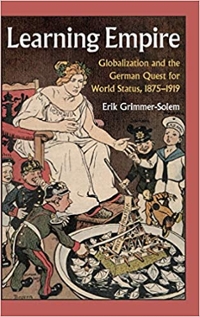
Learning Empire: Globalization and the German Quest for World Status, 1875-1919
by
Read More
Structured around the figures of five influential economists who shaped the German political landscape, Learning Empire explores how their overseas experiences shaped public perceptions of the world and Germany's place in it. These men helped define a German liberal imperialism that came to influence the 'world policy' (Weltpolitik) of Kaiser Wilhelm, Chancellor Bülow, and Admiral Tirpitz. They devised naval propaganda, reshaped Reichstag politics, were involved in colonial and financial reforms, and helped define the debate over war aims in the First World War. Looking closely at German worldwide entanglements, Learning Empire recasts how we interpret German imperialism, the origins of the First World War, and the rise of Nazism, inviting reflection on the challenges of globalization in the current century.
You can purchase this book here.
-

A Right to Bear Arms?: The Contested Role of History in Contemporary Debates on the Second Amendment
by
Read More
The debate over the Second Amendment has unveiled new and useful information about the history of guns and their possession and meaning in the United States of America. History itself has become contested ground in the debate about firearms and in the interpretation of the Second Amendment to the Constitution of the United States. Specifically this collection of essays gives special attention to the important and often overlooked dimension of the applications of history in the law. These essays illustrate the complexity of the firearms debate, the relation between law and behavior, and the role that historical knowledge plays in contemporary debates over law and policy. Wide-ranging and stimulating The Right to Bear Arms is bound to captivate both historians and casual readers alike.
You can purchase this book here.
-
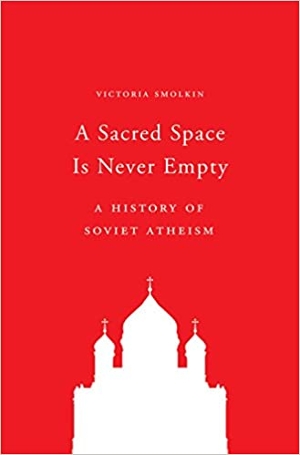
A Sacred Space Is Never Empty: A History of Soviet Atheism
by
Read More
A Sacred Space Is Never Empty presents the first history of Soviet atheism from the 1917 revolution to the dissolution of the Soviet Union in 1991. Drawing on a wealth of archival material and in-depth interviews with those who were on the front lines of Communist ideological campaigns, Victoria Smolkin argues that to understand the Soviet experiment, we must make sense of Soviet atheism. Smolkin shows how atheism was reimagined as an alternative cosmology with its own set of positive beliefs, practices, and spiritual commitments. Through its engagements with religion, the Soviet leadership realized that removing religion from the "sacred spaces" of Soviet life was not enough. Then, in the final years of the Soviet experiment, Mikhail Gorbachev―in a stunning and unexpected reversal―abandoned atheism and reintroduced religion into Soviet public life.
A Sacred Space Is Never Empty explores the meaning of atheism for religious life, for Communist ideology, and for Soviet politics.You can purchase this book here.
-
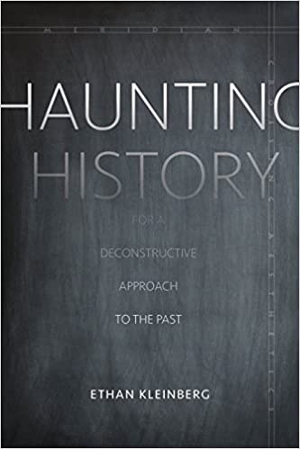
Haunting History: For a Deconstructive Approach to the Past (Meridian: Crossing Aesthetics)
Read MoreTo do so, it explores the legacy and impact of deconstruction on American historical work; the current fetishization of lived experience, materialism, and the "real;" new trends in philosophy of history; and the persistence of ontological realism as the dominant mode of thought for conventional historians.
Arguing that this ontological realist mode of thinking is reinforced by current analog publishing practices, Ethan Kleinberg advocates for a hauntological approach to history that follows the work of Jacques Derrida and embraces a past that is at once present and absent, available and restricted, rather than a fixed and static snapshot of a moment in time. This polysemic understanding of the past as multiple and conflicting, he maintains, is what makes the deconstructive approach to the past particularly well suited to new digital forms of historical writing and presentation.
You can purchase this book here.
-
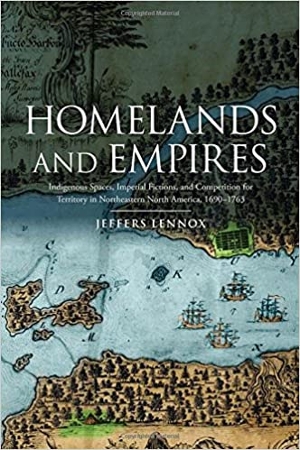
Homelands and Empires: Indigenous Spaces, Imperial Fictions, and Competition for Territory in Northeastern North America, 1690-1763 (Studies in Atlantic Canada History)
by
Read More
Homelands and Empires is the inaugural volume in the University of Toronto Press’s Studies in Atlantic Canada History. In this deeply researched and engagingly argued work, Jeffers Lennox reconfigures our general understanding of how Indigenous peoples, imperial forces, and settlers competed for space in northeastern North America before the British conquest in 1763. Lennox’s judicious investigation of official correspondence, treaties, newspapers and magazines, diaries, and maps reveals a locally developed system of accommodation that promoted peaceful interactions but enabled violent reprisals when agreements were broken. This outstanding contribution to scholarship on early North America questions the nature and practice of imperial expansion in the face of Indigenous territorial strength.
You can purchase this book here.
-
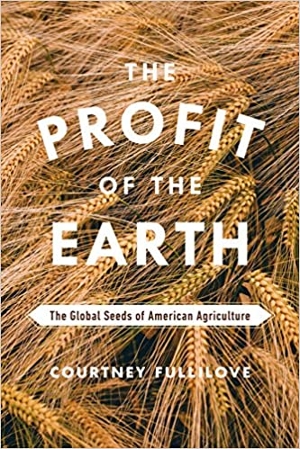
-
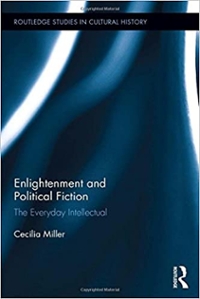
Enlightenment and Political Fiction - The Everyday intellectual
by
Read More
Amusingly, many of these abstract ideas were presented for the first time in stories featuring less-than-gifted central characters. The five particular works of fiction examined here, which this book takes as embodying the core of the Enlightenment, focus more on the individual than on social group. Nevertheless, in these same works of fiction, this individual has responsibilities as well as rights―and these responsibilities and rights apply to every individual, across the board, regardless of social class, financial status, race, age, or gender. Unlike studies of the Enlightenment which focus only on theory and nonfiction, this study of fiction makes evident that there was a vibrant concern for the constructive as well as destructive aspects of emotion during the Enlightenment, rather than an exclusive concern for rationality.
You can purchase this book here.
-
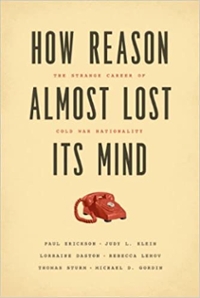
How Reason Almost Lost Its Mind: The Strange Career of Cold War Rationality
by
Read More
How Reason Almost Lost Its Mind brings to life the people—Herbert Simon, Oskar Morgenstern, Herman Kahn, Anatol Rapoport, Thomas Schelling, and many others—and places, including the RAND Corporation, the Center for Advanced Study in the Behavioral Sciences, the Cowles Commission for Research and Economics, and the Council on Foreign Relations, that played a key role in putting forth a “Cold War rationality.” Decision makers harnessed this picture of rationality—optimizing, formal, algorithmic, and mechanical—in their quest to understand phenomena as diverse as economic transactions, biological evolution, political elections, international relations, and military strategy. The authors chronicle and illuminate what it meant to be rational in the age of nuclear brinkmanship.
You can purchase this book here.
-
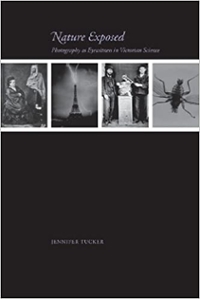
Nature Exposed: Photography as Eyewitness in Victorian Science
by
Read More
Tucker examines the role of photograph as witness in scientific investigation and explores the interplay between photography and scientific authority. Almost immediately after the invention of photography in 1839, photographs were characterized as offering objective access to reality - unmediated by human agency, political ties, or philosophy. This mechanical objectivity supposedly eliminated judgment and interpretation in reporting and picturing scientific results. But photography is a labor-intensive process that allows for, and sometimes requires, manipulation. In the late nineteenth century, the nature of this new technology sparked a complex debate about scientific practices and the value of the photographic images in the production and dissemination of scientific knowledge. Recovering the controversies and commentary surrounding the early creation of scientific photography and drawing on a wide range of new sources and critical theories, Tucker establishes a greater understanding of the rich visual culture of Victorian science and alternative forms of knowledge, including psychical research.
You can purchase this book here.
-

Presence: Philosophy, History, and Cultural Theory for the Twenty-First Century
by Ethan Kleinberg (Editor)
The philosophy of "presence" seeks to challenge current understandings of meaning and understanding. One can trace its origins back to Vico, Dilthey, and Heidegger, though its more immediate exponents include Jean-Luc Nancy, Hans Ulrich Gumbrecht, and such contemporary philosophers of history as Frank Ankersmit and Eelco Runia.
Read MoreThe theoretical paradigm of presence conveys how the past is literally with us in the present in significant and material ways: Things we cannot touch nonetheless touch us. This makes presence a post-linguistic or post-discursive theory that challenges current understandings of "meaning" and "interpretation." Presence provides an overview of the concept and surveys both its weaknesses and its possible uses.In this book, Ethan Kleinberg and Ranjan Ghosh bring together an interdisciplinary group of contributors to explore the possibilities and limitations of presence from a variety of perspectives―history, sociology, literature, cultural theory, media studies, photography, memory, and political theory. The book features critical engagements with the presence paradigm within intellectual history, literary criticism, and the philosophy of history. In three original case studies, presence illuminates the relationships among photography, the past, memory, and the Other. What these diverse but overlapping essays have in common is a shared commitment to investigate the attempt to reconnect meaning with something "real" and to push the paradigm of presence beyond its current uses. The volume is thus an important intervention in the most fundamental debates within the humanities today.
Contributors: Bill Ashcroft, University of New South Wales; Mark Bevir, University of California, Berkeley; Susan A. Crane, University of Arizona; Ranjan Ghosh, University of North Bengal; Suman Gupta, Open University Ethan Kleinberg, Wesleyan University; John Michael, University of Rochester; Vincent P. Pecora, University of Utah; Roger I. Simon.
You can purchase this book here.
-
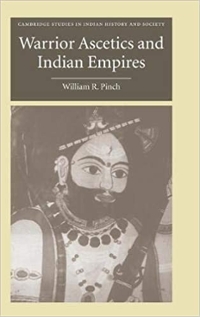
Warrior Ascetics and Indian Empires (Cambridge Studies in Indian History and Society, Series Number 12)
by William R. Pinch (Author)
Many people assume, largely because of Gandhi's legacy, that Hinduism is a religion of non-violence. In this 2006 book William R. Pinch shows just how wrong this assumption is.
Read MoreUsing the life of Anupgiri Gosain, a Hindu ascetic who lived at the end of the eighteenth century, he demonstrates that Hindu warrior ascetics were an important component of the South Asian military labor market in the medieval and early modern Indian past, and crucial to the rise of British imperialism. Today, they occupy a prominent place in modern Indian imaginations, ironically as romantic defenders of a Hindu India against foreign invasion, even though they are almost totally absent from Indian history. William R. Pinch's innovative and gloriously composed book sets out to piece together the story of the rise and demise of warrior asceticism in India from the 1500s to the present. It will appeal to students of religion and historians of empire.
You can purchase this book here.
-
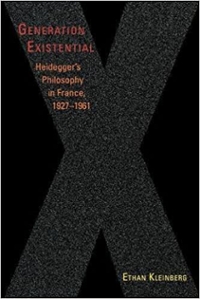
Generation Existential: Heidegger's Philosophy in France, 1927–1961
by
Read More
Among Kleinberg's "generation existential" are Jean Beaufret, the only member of the group whom one could characterize as "a Heideggerian"; Maurice Blanchot; Alexandre Kojéve; Emmanuel Levinas; and Jean-Paul Sartre. In showing how each of these figures engaged with Heidegger, Kleinberg helps us to understand how the philosophy of this right-wing thinker had such a profound influence on intellectuals of the left. Furthermore, Kleinberg maintains that our view of Heidegger's influence on contemporary thought is contingent on our comprehension of the ways in which his philosophy was initially understood, translated, and incorporated into the French philosophical canon by this earlier generation.
You can purchase this book here.
-
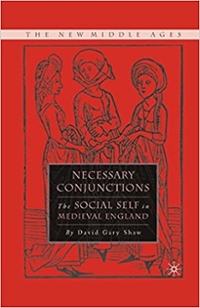
Necessary Conjunctions: The Social Self in Medieval England (The New Middle Ages)
by
Read More
It gives special attention to how prevalent norms of honor, fidelity and hierarchy guided and were manipulated by medieval citizens. With variable success, medieval men and women defined themselves and each other by the clothes they work, the goods they cherished, as well as by their alliances and enemies, their sharp tongues and petty violence. Employing a highly interdisciplinary methodology and an original theory makes it possible to see how personal agency and identity developed within the framework of later medieval power structures.
You can purchase this book here.
-

Geisha, Harlot, Strangler, Star: A Woman, Sex, and Morality in Modern Japan (Asia Perspectives: History, Society, and Culture)
by
Read More
Despite Abe Sada's notoriety and the depictions of her in film and fiction (notably in the classic In the Realm of the Senses), until now, there have been no books written in English that examine her life and the forces that pushed her to commit the crime. Along with a detailed account of Sada's personal history, the events leading up to the murder, and its aftermath, this book contains transcripts of the police interrogations after her arrest―one of the few existing first-person records of a woman who worked in the Japanese sex industry during the 1920s and 1930s―as well as a memoir by the judge and police records.
Geisha, Harlot, Strangler, Star steps beyond the simplistic view of Abe Sada as a sexual deviate or hysterical woman to reveal a survivor of rape, a career as a geisha and a prostitute, and a prison sentence for murder. Sada endured discrimination and hounding by paparazzi until her disappearance in 1970. Her story illustrates a historical collision of social and sexual values―those of the samurai class and imported from Victorian Europe against those of urban and rural Japanese peasants.You can purchase this book here.
-
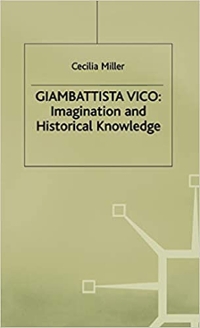
Giambattista Vico: Imagination and Historical Knowlege (Studies in Modern History)
by
Read More
The theories of language and society of Giambattista Vico (1668-1744) are examined in this textual analysis of the full range of his theoretical writings, with special emphasis on his little known early works. Vico's fundamental importance in the history of European ideas lies in his strong anti-Cartesian, anti-French and anti-Enlightenment views. In an age in which intellectuals adopted a rational approach, Vico stressed the nonrational element in man - in particular, imagination - as well as social and civil relationships, none of them reducible to the scientific theories so popular in his time. The notions of imagination, language and historical consciousness constituted Vico's unique contribution to the history of ideas and laid the groundwork for subsequent inquiries into the history of ideas.
You can purchase this book here.
-

The Electrical Workers: A History of Labor at General Electric and Westinghouse, 1923-60 (The Working Class in American History)
by
-
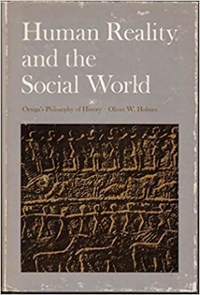
Human Reality and the Social World: Ortega's Philosophy of History
by Oliver Holmes (Author)
You can purchase this book here.
-
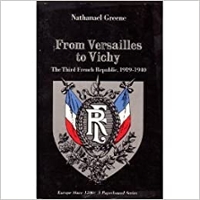
From Versailles to Vichy: The Third French Republic 1919-1940
by Nathanael Greene (Author)
You can purchase this book here.
-
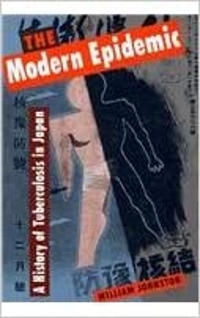
The Modern Epidemic: A History of Tuberculosis in Japan (Harvard East Asian Monographs)
by
Through a historical and comparative analysis of modern Japan's epidemic of tuberculosis, William Johnston illuminates a major but relatively unexamined facet of Japanese social and cultural history.
Read MoreJohnston utilizes a broad range of sources, including medical journals and monographs, archaeological evidence, literary works, ethnographic data, and legal and government documents to reveal how this and similar epidemics have been the result of social changes that accompanied the process of modernization. Johnston also shows the ways in which modern states, private organizations, and individual citizens have responded to epidemics, and in the process reexamines the concept of the epidemic itself, showing that epidemics must be thought of not only in medical and biological terms but in political, social and cultural terms as well.
You can purchase this book here.

